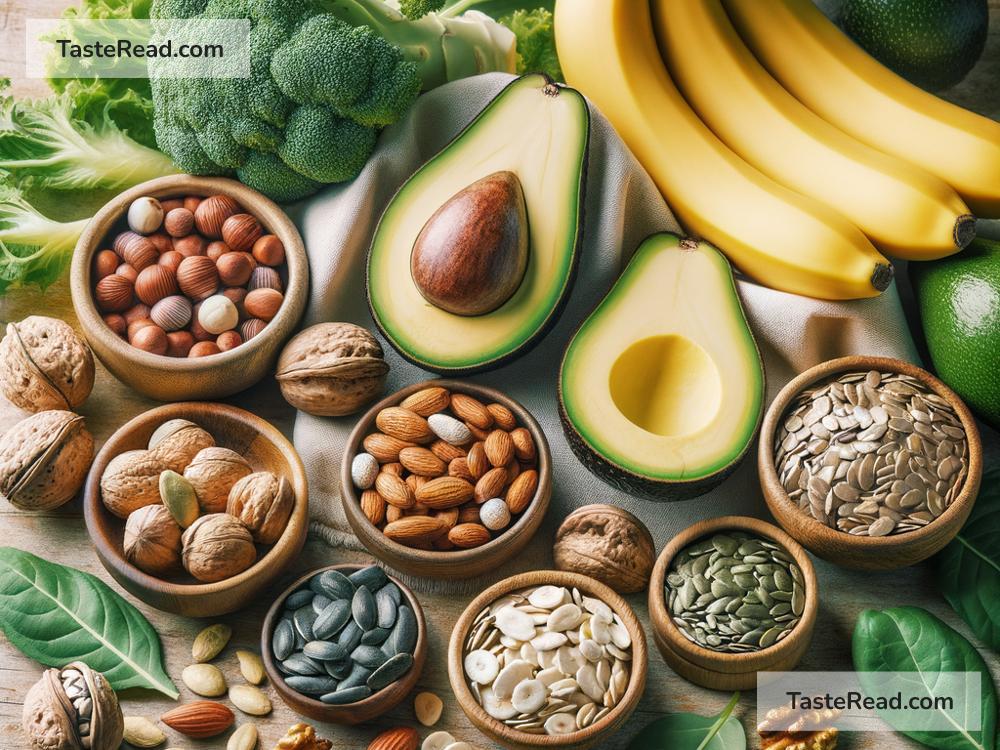Foods That Support Progesterone Regulation
Hormones play a key role in how your body functions, and one of the most important hormones for women is progesterone. Progesterone is responsible for maintaining a healthy menstrual cycle, supporting pregnancy, and balancing stress levels. When progesterone levels are off, it can cause problems like irregular periods, mood swings, difficulty getting pregnant, or even issues with sleep.
The good news is that the food you eat can help regulate progesterone naturally. While food itself doesn’t contain progesterone, certain nutrients and compounds can support your body’s ability to produce and balance this hormone. Let’s explore some of the best foods to include in your diet for supporting progesterone levels.
1. Foods Rich in Vitamin B6
Vitamin B6 is essential for hormone production and can help your body make progesterone. It also supports your adrenal glands, which play a role in hormone balance.
Examples of foods high in Vitamin B6 include:
– Bananas
– Chickpeas
– Salmon
– Turkey
– Potatoes
– Spinach
Adding these foods to your meals can give your body the building blocks it needs to regulate progesterone.
2. Magnesium-Rich Foods
Magnesium is a mineral that supports hormone regulation and helps calm the nervous system. Stress can lower progesterone levels, so eating magnesium-rich foods can indirectly help keep this hormone in balance.
Examples of magnesium-rich foods include:
– Dark leafy greens like kale and Swiss chard
– Almonds and cashews
– Black beans
– Avocados
– Dark chocolate (the higher the cacao content, the better!)
Snack on a handful of nuts or enjoy a spinach salad to boost your magnesium levels naturally.
3. Zinc-Based Foods
Zinc plays a big role in hormone production, including progesterone. It helps stimulate the ovaries to produce the hormone, making it essential for maintaining healthy levels.
Examples of zinc-rich foods include:
– Pumpkin seeds
– Oysters
– Beef
– Crab
– Lentils
If you’re vegetarian or vegan, pumpkin seeds and lentils are excellent plant-based sources of zinc.
4. Healthy Fats
Hormones, including progesterone, are made from cholesterol. Eating healthy fats helps your body produce the hormones it needs. Focus on good fats that support hormone production and balance.
Examples of healthy fats include:
– Coconut oil
– Olive oil
– Avocados
– Nuts and seeds
– Fatty fish like salmon and mackerel
Cooking with olive oil or snacking on an avocado can help provide your body with the fats it needs to produce progesterone.
5. Vitamin C-Rich Foods
Vitamin C is another powerful nutrient that supports progesterone production. Research suggests that higher vitamin C intake can directly increase progesterone levels.
Examples of foods high in vitamin C include:
– Oranges
– Strawberries
– Bell peppers
– Broccoli
– Kiwi
Starting your day with orange slices or a strawberry smoothie is an easy and delicious way to nourish your hormones.
6. Foods High in Dietary Fiber
Fiber supports your hormone health by removing excess estrogen from your body. Estrogen and progesterone work closely together, so balancing estrogen levels can indirectly help with progesterone regulation.
Examples of high-fiber foods include:
– Whole grains like oats and quinoa
– Beans and lentils
– Fruits like apples and pears
– Vegetables like carrots and broccoli
A fiber-rich diet can create a healthier hormone environment in your body.
7. Herbs and Spices
Certain herbs and spices are known to support hormonal balance, including progesterone regulation. While they’re not a direct source of nutrients, they can help your body stay in balance.
Examples include:
– Turmeric: Helps reduce inflammation, which supports hormone health.
– Ginger: Supports circulation and has calming effects on the body.
– Cinnamon: May help with insulin resistance, which is linked to hormone imbalances.
Adding these spices to your meals can provide health benefits alongside great flavor.
8. Foods That Support Gut Health
Your gut plays a key role in hormone production and balance. Eating foods that improve digestion can create a healthier environment for your hormones.
Examples of gut-friendly foods include:
– Yogurt with live probiotics
– Fermented foods like sauerkraut and kimchi
– Bone broth
– Apples and bananas (for their prebiotic fiber)
A healthy gut means a healthier hormonal balance—so don’t forget to take care of digestion when thinking about progesterone regulation.
Final Tips for Progesterone Regulation
In addition to eating the right foods, lifestyle factors also affect your hormone balance. Managing stress, getting enough sleep, exercising regularly, and limiting processed foods can all help support your body’s natural hormone rhythms.
If you think you may have serious issues with progesterone levels, it’s always a good idea to consult a healthcare provider. They can help pinpoint specific causes and create a personalized plan of action.
By making small changes to your diet, you can naturally support your body’s ability to regulate progesterone. Focus on nutrient-rich foods, eat a variety of colorful fruits and vegetables, and prioritize whole, unprocessed ingredients. Your body will thank you!
In conclusion, food plays a powerful role in hormone health. Incorporating foods rich in vitamin B6, magnesium, zinc, healthy fats, fiber, and gut-friendly ingredients will support your body’s ability to regulate progesterone and maintain overall hormonal balance. With the right nutrition, you can feel your best and enjoy a healthier, more balanced life.


